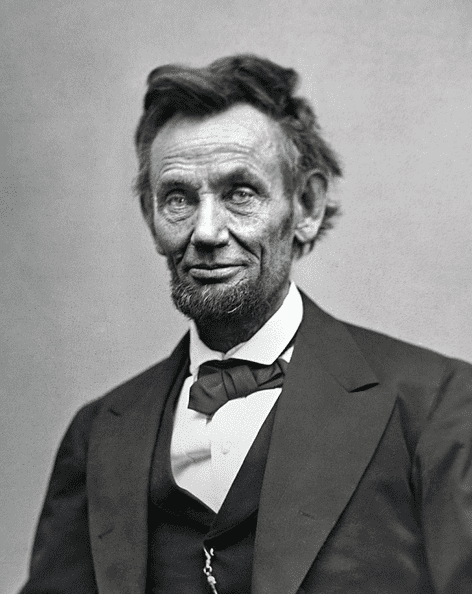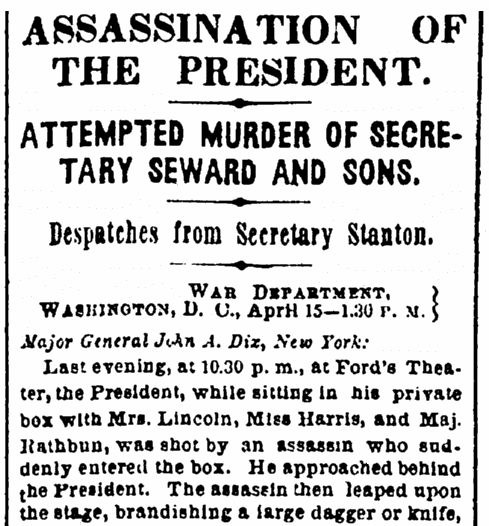When Confederate General Robert E. Lee surrendered to Union General Ulysses S. Grant at Appomattox Court House on 9 April 1865, it seemed the nation’s long nightmare was at last coming to an end. It was clear to everyone that the Civil War would be over soon, and the time for healing could begin. The country was not alone in needing recovery; U.S. President Abraham Lincoln did, too. Photographs taken of the chief executive at the beginning of the war and near its end show how much he had aged in four years, as the great strain of trying to make the Union whole again took its toll.

Lee’s surrender greatly relieved the president. At a Cabinet meeting held on Good Friday, April 14, just five days after the surrender, Lincoln was cheerful, almost buoyant. That night, he went with his wife and two companions to spend an evening relaxing at the local theater, enjoying a light comedy called “Our American Cousin.”
Then, during the third act, disaster struck. John Wilkes Booth, a 26-year-old actor and fervent Southern sympathizer, crept into the president’s private box and blasted a single bullet directly into the back of Lincoln’s head. The president slumped forward, never again to regain consciousness, and died nine hours later the morning of 15 April 1865.
There had never before been an assassination of a U.S. president, and both the Union and the Confederacy were stunned. Many, especially in the Northern states, were distraught and grieved deeply. The Union did indeed become whole again, but Abraham Lincoln did not live to see it.
This is the news readers in Washington, D.C., saw in their local newspaper.

An online collection of newspapers, such as GenealogyBank’s Historical Newspaper Archives, is not only a great way to learn about the lives of your ancestors – the old newspaper articles also help you understand American history and the times your ancestors lived in, and the news they talked about and read in their local papers.
Explore over 330 years of newspapers and historical records in GenealogyBank. Discover your family story! Start a 7-Day Free Trial
Related Abraham Lincoln Articles:
